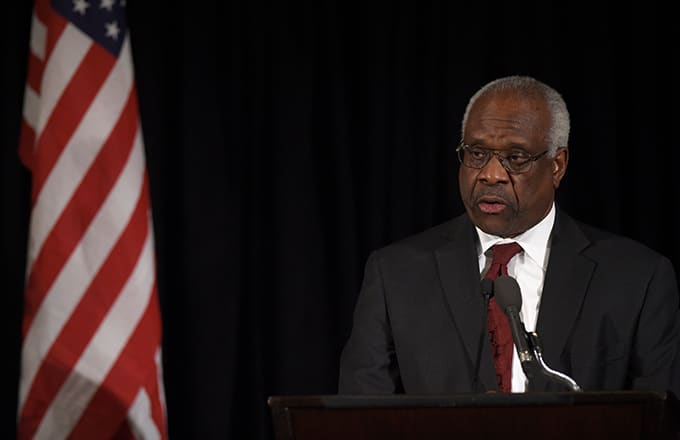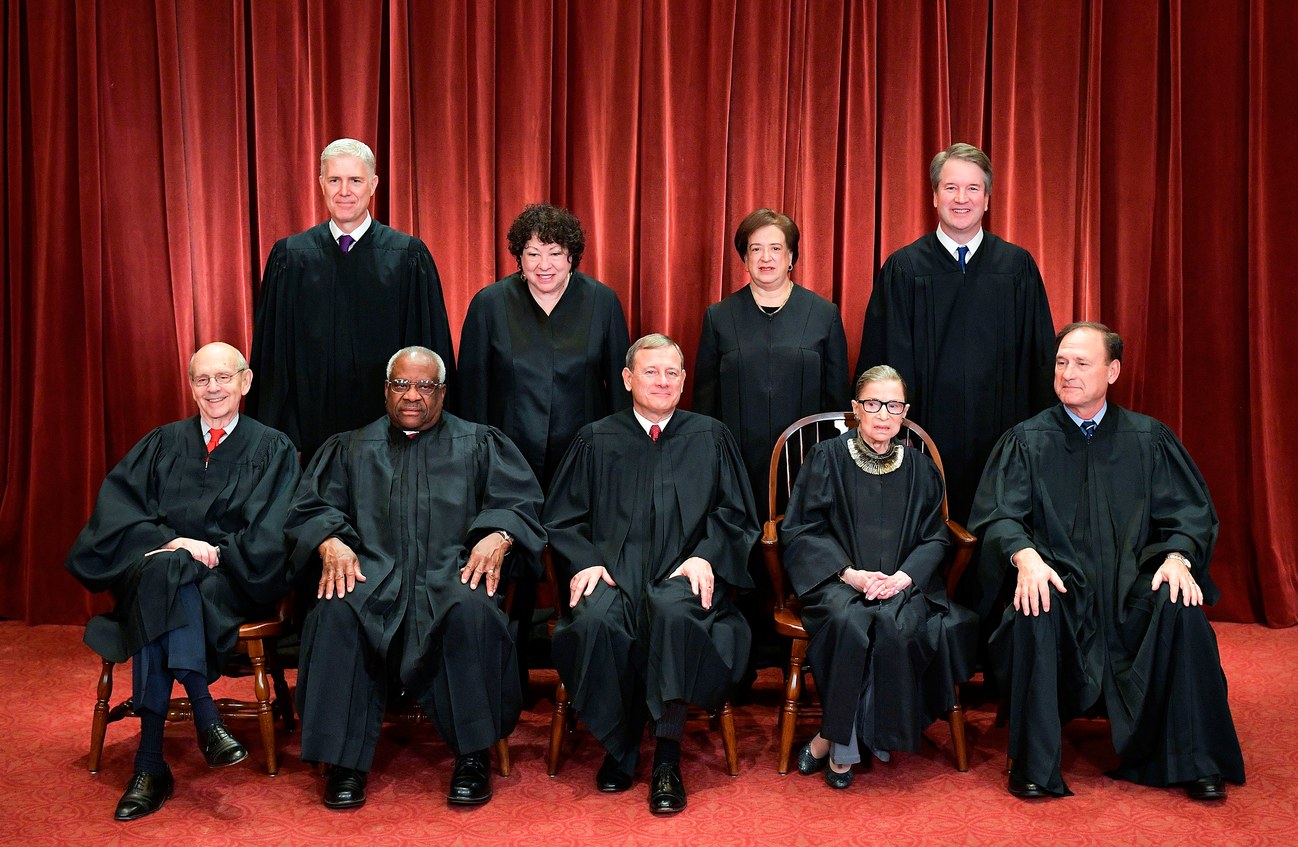
US is a Republic
- By Timothy Snowball
- |
- August 30, 2020
- | Link here
Advocates of more democracy even have gone so far as to call for abolishing some of our American institutions. These proposals range from getting rid of the Electoral College, to blocking the confirmation of “unpopular” Supreme Court justices, to tying representation in the U.S. Senate to state populations, rather than retaining equal representation.
The rationale for such drastic changes is that the institutions in question just aren’t democratic enough. After all, there’s no higher political value than responding to the will of the majority of people, right?
Wrong.
Contrary to catchy slogans, memes and other slick forms of electioneering, the government of the United States was never intended to be a pure democracy. In fact, most of the institutions today’s activists complain about were designed to thwart the pernicious effects of too much democracy. They’re anti-democratic by design. Rather than flaws that require remedy, these institutions were (and are) essential safeguards for individual liberty.
The Framers knew that in its pure form democracy could be dangerous. The writings of the founding era are replete with warnings of this fact:
- “Real liberty is not found in the extremes of democracy, but in moderate governments,” Alexander Hamilton wrote. “If we incline too much to democracy we shall soon shoot into a monarchy, or some other form of a dictatorship.”
- Thomas Jefferson lamented that “a democracy is nothing more than mob rule, where 51 percent of the people may take away the rights of the other 49.”
- James Madison argued that democracies “have ever been spectacles of turbulence and contention; have ever been incompatible with personal security or the rights of property; and have in general been as short in their lives as they have been violent in their deaths.”
- John Adams concluded that democracy “never lasts long. It soon wastes, exhausts and murders itself. There never was a democracy yet that did not commit suicide.”
Despite what many of today’s activists would have us believe, the anti-democratic institutions of the American Republic are just as vital now as they were over 200 years ago.
For example, the Electoral College ensures that individuals elected to the presidency don’t only have the support of the population-heavy coasts, but broad support throughout the entire country. The function of the Electoral College is to respect and represent the states as sovereign entities within our federal system.
Finally, the Supreme Court is perhaps the least democratic institution of all. The court’s members are given lifetime appointments by presidents elected via the Electoral College, subject to no democratic oversight or elections. Justices are called upon to decide cases and controversies according to what the law demands, not according to their personal preferences or the passions and prejudices of the electorate.
åIn the United States, the people rule, but only through institutions designed to protect the individual and minority from the tyranny of the majority. That system is worth protecting and preserving.

Electoral College
Madison referred to impetuous mobs as factions, which he defined in “Federalist No. 10” as a group “united and actuated by some common impulse of passion, or of interest, adversed to the rights of other citizens, or to the permanent and aggregate interests of the community.” Factions arise, he believed, when public opinion forms and spreads quickly. But they can dissolve if the public is given time and space to consider long-term interests rather than short-term gratification. Jefferson created the notion of a Federal Republic, not a democracy see here.

Supreme Court justices feuding openly over death penalty
- By Cumulative income in US
- |
- April 30, 2019
- | Link here
Cumulative income in US

Supreme Court justices feuding openly over death penalty
- By Cumulative income in US
- |
- April 30, 2019
- | Link here
Cumulative income in US

Supreme Court justices feuding openly over death penalty
- By Katherine Lam Fox News
- |
- April 2, 2019
- | Link here
A Missouri man convicted in a brutal rape and murder can be executed by lethal injection because he is not guaranteed a "painless death," the U.S. Supreme Court ruled Monday, quashing Russell Bucklew's bid to avoid the needle because of his rare medical condition. In a 5-4 ruling, the Supreme Court granted Missouri the right to proceed with execution protocol for Bucklew, who was sentenced to death for the 1996 murder of Michael Sanders, who was dating Bucklew's ex-girlfriend. Bucklew had previously assaulted the couple and stalked his former lover the day of the murder in order to find out where she was living. After shooting and killing Sanders, Bucklew fired at his former girlfriend's 6-year-old child -- and missed -- before kidnapping the woman and raping her several times. He was eventually arrested after a car chase and police shootout.. See here Also see here.

Supreme Court to decide fate of cross-shaped WWI memorial in Maryland
- By ABC Devin Dwyer
- |
- Feb 25, 2019
- | Link here
A 40-foot, 16-ton Latin cross on public land in Bladensburg, Maryland, is the next major legal test for the Constitutional separation of church and state. The Supreme Court will consider this week whether the memorial, erected in 1925 to honor 49 Americans who fought in World War I, improperly promotes Christianity at government expense. What the nine justices decide could have a sweeping impact on communities nationwide, where historic war memorials and government buildings bearing religious imagery are commonplace. "Is this 'establishment of religion' through entanglement? That is the operative question," said JP Schnapper-Casteras, a constitutional lawyer and former Supreme Court advocate for the Legal Defense Fund. See here.

Justice Clarence Thomas calls for reconsideration of landmark libel case
- By CNN Tammy Kupperman and Sophie Tatum
- |
- Feb 19, 2019
- | Link here
Supreme Court Justice Clarence Thomas on Tuesday called for reconsideration of a landmark First Amendment precedent, criticizing the 1964 decision that the Constitution creates a higher barrier for public figures to claim libel. Thomas wrote alongside a court decision not to take up the case of a woman who accused Bill Cosby of sexual misconduct in 2014. He suggested that the seminal case New York Times v. Sullivan, holding that public figures have a higher burden to prove libel, was wrongly decided. "New York Times and the Court's decisions extending it were policy-driven decisions masquerading as constitutional law," Thomas wrote. "If the Constitution does not require public figures to satisfy an actual-malice standard in state-law defamation suits, then neither should we," the opinion states. See here.

Ruth Bader Ginsburg Isn’t Looking to Retire Yet, But Is Another Supreme Court Justice Ready to Go?
- By The New Yorker J. Toobin
- |
- Feb 13, 2019
- | Link here
With another Supreme Court vacancy, or two, President Trump’s record and influence on the future of the country will look even more secure. No one tells a Supreme Court Justice when to retire. But there are currently two retirement dramas under way at the Court—one semi-public and the other semi-private—and they both have the potential to reshape the meaning of the Constitution for decades. See here.

Supreme Court unanimously reaffirms: There is no ‘hate speech’ exception to the First Amendment
- By Eugene Volokh
- |
- Feb 1, 2019
- | Link here
From the opinion by Justice Samuel Alito (for four justices) in Matal v. Tam, the “Slants” case:
[The idea that the government may restrict] speech expressing ideas that offend … strikes at the heart of the First Amendment. Speech that demeans on the basis of race, ethnicity, gender, religion, age, disability, or any other similar ground is hateful; but the proudest boast of our free speech jurisprudence is that we protect the freedom to express “the thought that we hate.”
Florida man points laser at sheriff’s helicopter
- By Rory Lewis
- |
- Feb 17, 2019
Tongue in cheek "proof" that heroin induces rapid brain hypoxia and hyperglycemia, and consequently destroys the brain, Brian Harting, 48, was arrested after he shined a red laser at a sheriff’s helicopter that was circling overhead. Brian admitted to pointing the device at the Sheriff’s helicopter but claimed he did not know it was an illegal act, even though the laser had a warning sticker: “Never aim at aircraft.” See News article here. See clinical trial of hypoxia/heroin use here. Solis Jr, Ernesto, et al. "Intravenous heroin induces rapid brain hypoxia and hyperglycemia that precede brain metabolic response." eNeuro 4.3 (2017).
If you can design one thing you can design everything. Just Believe It
- Htmlstream -
Something Really Cool Coming Soon
- By Rory Lewis
- |
- Jan 1, 2019
- |
- 06
Lorem Ipsum is simply dummy text of the printing and typesetting industry. Lorem Ipsum has been the industry's standard dummy text ever since the 1500s, when an unknown printer took a galley of type and scrambled it to make a type specimen book.

Something Really Cool Coming Soon
- By Rory Lewis
- |
- Jan 1, 2019
- |
- 06
Donec semper a mod felis vel est porttitor interdum. Sed risusdak velit, facilisis et arcu hendrerit, scelerisque iaculis felis...

Something Really Cool Coming Soon
- By Rory Lewis
- |
- Jan 1, 2019
- |
- 06
There are many variations of passages of Lorem Ipsum available, but the majority have suffered alteration in some form, by injected humour, or randomised words which don't look even slightly believable. If you are going to use a passage of Lorem Ipsum, you need to be sure there isn't anything embarrassing hidden in the middle of text.

Something Really Cool Coming Soon
- By Rory Lewis
- |
- Jan 1, 2019
- |
- 06
Donec semper tempus nisi felis vel est porttitor interdum. Sed risusdak velit, facilisis et arcu hendrerit, scelerisque iaculis felis...




